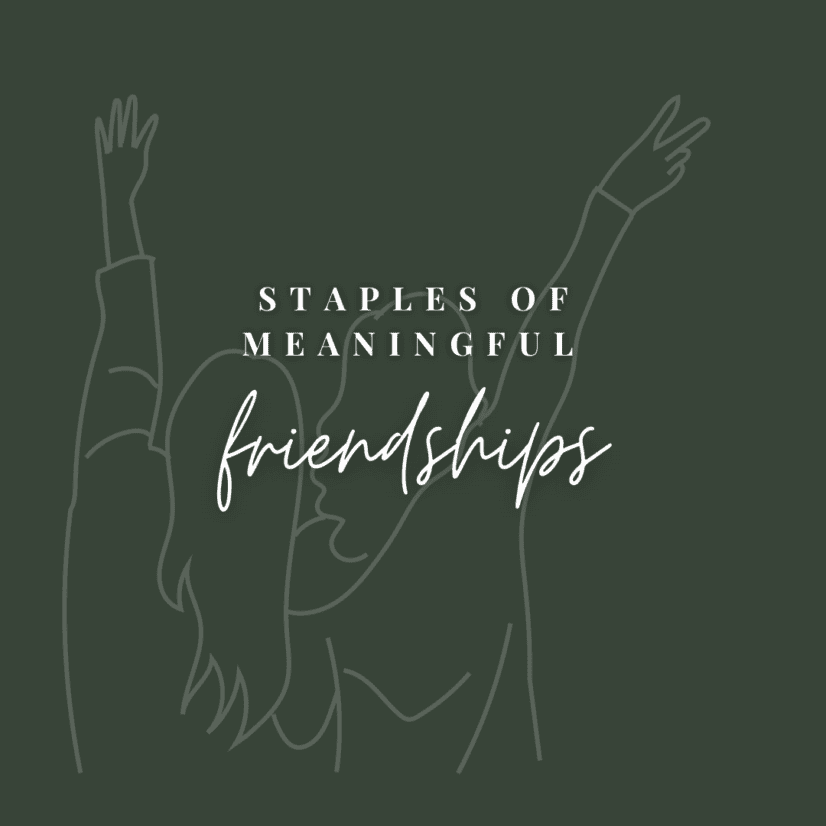Different seasons have different focal points. For many of our growing-up years, friendships seem to be the center of our world. Yet as we get older, there are more and more things vying for our attention and time. In our busyness, the importance of friendship can be underrated, or glossed over. Culturally, family and work tend to top the priority list–both very important things!
And, where does that leave friendship?
A 2017 study found that friendships become more important as people age. Researcher William Chopik told Time magazine “the really surprising thing was that, in a lot of ways, relationships with friends had a similar effect as those with family—and in others, they surpassed them.”
So, when life is busy and full, but friendships are an important part of life…how do we juggle it? How do we stay close and connected?
Researcher Dr. Emily Langan was interested in this too. Her research found that staying close and connected with a friend comes down to three things: ritual, assurances, and openness.
Langan writes that ritual is important because “we need commemorative experiences together”.
Marriages have anniversaries and families celebrate holidays and keep traditions that remind them of connection and history. Friendships, however, don’t naturally have celebrated milestones or annual rhythms…they need to be intentionally created. Something that brings us back to spend time together, or warrants a phone call, or celebration, or event amidst the busyness of life.
Secondly, we need assurances in order to continue feeling close and connected.
Assurances look like continually letting the other person know that the friendship is important to them. We can know that it was an important friendship in college, or in young adulthood, but unless we continue to affirm that, we don’t know where it stands in the present. Assurances, according to Langan, can be both verbal or nonverbal. However, you communicate to your friend that you plan to stick around, that you envision yourselves being friends in the future.
The third piece is openness.
Long-term friendships mean that situations will change, seasons will come and go, and with it, there will be different needs within the relationship. Openness and vulnerability allows us to address when something in the friendship changes. While it’s a risk, it beats the alternative of sweeping it under the rug, growing resentment or avoidance, and slowly watching the distance grow between you and your friend. Openness isn’t for addressing only negative moments though. It is also for expressing the value and joy they bring to your life now. (Big Friendship, 193-197).
Developing long-lasting friendships takes intentionality, as there aren’t built-in structures of commitment.
In a family, there is the genetic tie of being related, and being a part of a group–historically, the most important group. In a romantic relationship, there is the long-term commitment of marriage, with hopes that it will be lifelong. A friendship on its own doesn’t have much security built into it–hypothetically, you could cut and run at any time. (However, I don’t recommend it). As you acknowledge the importance of friendships in your life, take a moment to do some inventory with your close friends. Do you feel close, or connected? Are there rituals, big or small, that have naturally come into place over time? You may already exchange assurances in conversation and have cultivated a trust that leads to openness over many years. And if not–it isn’t too late to start connecting, or re-connecting, in order to build lasting, meaningful friendships in your life.
Written by: GROW Staff

